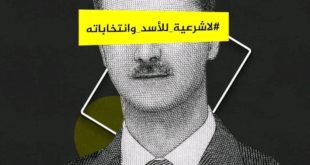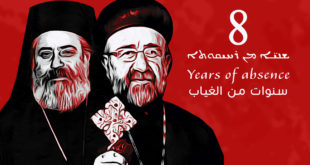By Sammy Ketz (AFP)
ADO-World.org
DAMASCUS — Ankara asked Damascus to offer the Muslim Brotherhood government posts in exchange for Turkey’s support in ending rallies in Syria, an offer rejected by Bashar al-Assad, officials and diplomats said.
The plan, which would have required that at least a quarter of ministerial positions went to the currently banned organisation, was initially mooted over the summer.
"In June, Turkish Prime Minister Recep Tayyip Erdogan offered, if Syrian President Bashar al-Assad ensured between a quarter and a third of ministers in his government were members of the Muslim Brotherhood, to make a commitment to use all his influence to end the rebellion," a Western diplomat told AFP.
"The head of the Syrian state refused such a proposal," said the diplomat, who did not want to be named.
A European diplomat, who also spoke on condition of anonymity, confirmed that such a request had been sent to the Syrian leadership.
"The Turks proposed at first that the Muslim Brotherhood occupy four major ministries and explained that they are part of the political components of this country," the diplomat said.
The Muslim Brotherhood has been banned in Syria since the rise of the Baath Party to power in 1963. They unsuccessfully tried to organise the population against Assad’s father and predecessor, Hafez, who brutally repressed a 1982 revolt in the city of Hama, leaving around 20,000 dead.
Law 49, issued in July 1980 and still in force, makes it a "criminal offence punishable by death to be affiliated with the Muslim Brotherhood."
Thousands of the organisation’s members have languished in Syria’s prisons for decades, though some have been released.
On August 9, Turkish Foreign Minister Ahmet Davutoglu delivered a written message to Assad from President Abdullah Gul, who belonged to organisations close to the Muslim Brotherhood before forming Turkey’s ruling Justice and Development Party
"We hope that some measures will be taken in the coming days to end the bloodshed and open the way to a process for political reform," Davutoglu said at Ankara airport upon his return from the one-day trip to Syria last month.
At the time, Davutoglu spent six and a half hours in talks, half of them one on one with the Syrian leader.
During those talks, he "called for the return of the Muslim Brotherhood in Syria," a Syrian official with knowledge of the talks said.
"President Assad told him that as individuals they could certainly come back and enjoy Syrian nationality, but never as a party, because they have a religious foundation which is incompatible with Syria’s secular character."
Syria is home to 22 million people from different sects and religions. The majority of its inhabitants are Sunni Muslims, and it has a substantial Christian minority, but the country is ruled by the Alawite minority, a branch of Shiite Islam.
Assad’s rejection of Turkey’s proposal led to a dramatic worsening in ties between the two countries, and on August 28, Gul said Ankara had "lost our confidence" in the Syrian regime.
More recently, during a meeting with a delegation representing Christian associations in the Middle East, Assad said, according to several news outlets, that he "refused that Ottomanism would replace Arabism, or that Ankara would become the decision-making centre of the Arab world."
He also voiced his opposition to religious parties participating in Syrian politics because "this would allow the Muslim Brotherhood, which is headquartered in Ankara, to control the region."
Asked about the offer made to Damascus, an official in the Turkish foreign ministry told AFP: "This is the first I have heard of that, but we have always said (to Syria) that if you do not share power through elections, and if you do not make reforms … things will become difficult for you."
Source: AFP
 Assyrian Democratic Organization ADO
Assyrian Democratic Organization ADO






